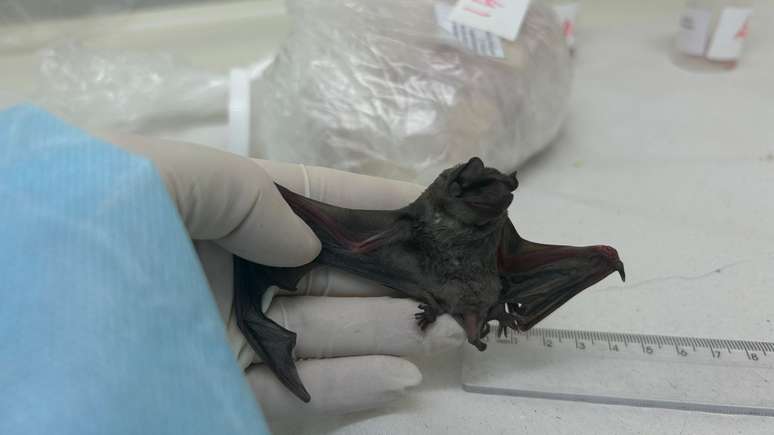Detected in Ceará, the new virus has similarities with the cause of the respiratory syndrome of the Middle East
Brazilian researchers, in collaboration with scientists from the University of Hong Kong, have identified a new coronavirus in bats in the state of Ceará. This is the first virus in South America with genetic similarities with the causal respiratory syndrome of the Middle East (Mers), identified for the first time in Saudi Arabia in 2012. The study was published in the Journal of Medical Virology.
The research revealed that the new virus has a genetic sequence with a similarity of 71.9% with the Mers-Cov genome. The gene responsible for the production of Spike protein, a virus structure to connect with guest cells, has the identity of 71.74% with the version found in the isolated virus of human beings in Saudi Arabia in 2015.
Bruna Stefanie Silvério, the first author of the study and the doctoral student at the Paulista School of Medicine of the Federal University of San Paolo (EPM-UNIFESP), explained that it is not yet possible to determine whether the virus has the ability to infect the Human beings. However, the presence of parts of the Spike protein suggests a potential interaction with the receptor used by Mers-Cov. To clarify this problem, this year experiments are held on high biosyphicness workshops.
The team of scientists identified seven types of coronavirus in five bats collected by the Central Health Laboratory of Ceará (Lacen) in Fortaleza. The animals belong to two different species: Molossus Molossus, of insectivore habits, and Artibus Lithuatus, a frugivorous species. The discovery strengthens the genetic diversity of the coronavirus present in the local fauna and the importance of monitoring these populations to prevent any risks for public health.
Mers-Cov, a virus that inspired global concern from its identification in 2012, caused over 800 deaths in 27 countries. The similarity found between the new virus and Mers-Cov warns of the need for in-depth investigations on their transmissibility and possible impacts on human health. The continuity of studies, including the experiments conducted at the University of Hong Kong, will be essential to better understand this new viral agent.
Source: Terra
Ben Stock is a lifestyle journalist and author at Gossipify. He writes about topics such as health, wellness, travel, food and home decor. He provides practical advice and inspiration to improve well-being, keeps readers up to date with latest lifestyle news and trends, known for his engaging writing style, in-depth analysis and unique perspectives.






-s4mtc70aep12.jpeg)

